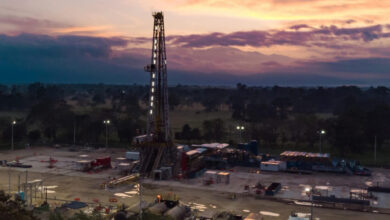District Court orders delay of BLM’s hydraulic fracturing rule on federal and Indian lands
On 23 June, US District Judge Scott Skavdahl issued an order delaying the implementation of the Bureau of Land Management’s (BLM) recently issued rules to govern hydraulic fracturing on federal and Indian lands, just hours before those rules were set to go into effect.
After a nine-hour hearing on a motion for a preliminary injunction, which BakerHostetler filed on behalf of the Independent Petroleum Association of America (IPAA) and Western Energy Alliance, Judge Skavdahl ruled that BLM could not implement the rule on 24 June as planned. The court postponed the final rule’s effective date at least until after the Department of Justice files the administrative record in the lawsuit. After the administrative record is filed on 22 July under the current schedule, all parties will have seven days to supplement their legal papers – and the court intends to issue a final decision on the preliminary injunction motion sometime in August.
IPAA and the Alliance, along with four states – Wyoming, North Dakota, Colorado and Utah – and the Ute Indian Tribe, argued that the implementation of the final hydraulic fracturing rule was likely to cause the states and industry members irreparable harm and requested the court enter an order preventing BLM from implementing the rule until the court reached the merits of the underlying lawsuit.
The district court agreed, finding that petitioners had presented credible evidence that the imposition of the rule would result in irreparable harm to oil and gas operators on federal lands and that existing federal and state rules were sufficient to protect against environmental harm during the time the court considered the preliminary injunction motion.
“The court’s decision today was an important first step in holding BLM accountable to the standards the Administrative Procedures Act imposes on federal agencies,” said Mark Barron, the BakerHostetler attorney that argued on behalf of IPAA and the Alliance at the hearing. “The court asked important questions about whether BLM undertook the analysis necessary to support a rulemaking of this nature, and the court recognized that existing federal and state law is adequate to protect environmental values while the case is adjudicated. We look forward to strengthening our arguments with material from the administrative record and hope to have the temporary stay converted to a preliminary injunction later this summer.”




